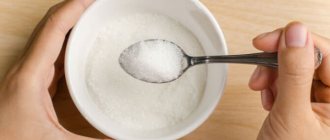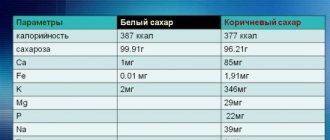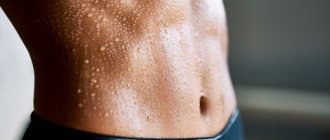Let's understand the company of a sports doctor.
Brands of energy drink manufacturers have long penetrated the sports world: they sponsor teams and tournaments, and we regularly see their logo on athletes’ uniforms.
Advertising slogans for drinks promise a surge of strength and a powerful boost of vivacity - it seems that with them you really become faster, stronger, and more resilient. It's time to figure out how effective energy drinks are and whether they are harmful.
Sports doctor Valentin Belyaevsky, who worked in Rostov, basketball and MMA, helped us.
Billionaire brands: which one is more successful?
In 2018 alone, the total sales of energy drinks in the United States reached $11 billion. The best-selling brand in the States is Red Bull ($4.6 billion), in second place is Monster ($4.1 billion), the rest are significantly behind the leaders. The situation in the world is as follows:
1. Red Bull2. Monster3. Rockstar Zero Carb4. Eastroc Super Drink 5. Hi-Tiger 6. Lucozade 7. NOS 8. Oronamin9. Burn 10. Adrenalin Rush
The Red Bull company was founded by the Austrian Dietrich Mateschitz in the early 80s , but the recipe for the drink was not his; The basis was the energy drink Krating Daeng (translated as Red Bull), which Dietrich met in Thailand.
Krating Daeng was popular among Thai truckers and workers - it was good for reducing drowsiness and adding energy. Mateschitz accidentally tried the drink in Thailand and was surprised to find that the energy drink helped cope with jet lag - jet lag. Together with the drink's producer Chaleo Juvidja, Mateschitz founded the new Red Bull company and launched a modernized version of Krating Daeng in the European market in 1987.
In 2008, Forbes included Juvidja and Mateschitz in the list of the richest people in the world in 260th place with an approximate fortune of $4 billion. In 2022, almost 7 billion cans of the drink will be sold worldwide.
The composition of Red Bull energy drink is richer than Lucozade: carbonated water, taurine, caffeine, B vitamins (B3, B5, B6, B12), sucrose, glucose, sweeteners, acidity regulators, dyes, flavors. One 250 ml can of Red Bull contains about 26 g of sugar - just over 5 teaspoons.
But there is a sugar-free option - Red Bull Sugar Free, which does not even contain sweeteners.
Manufacturers promise that the drink will relieve fatigue and drowsiness, increase vigor and tone.
Energetic drinks
These are liquids that contain energy-intensive substances. Their advantage is that they are ready to eat. Their composition differs little from other forms of energy drinks. Depending on the effect of the drinks, their components are substances such as guarana, carnitine, taurine, simple carbohydrates and minerals.
Guarana is a plant whose extract contains caffeine. Guarana-based drinks are more effective in increasing performance, vigor, reducing drowsiness, and burning fat.
Carnitine is a substance that increases muscle performance and protects against damage. One of the effects of carnitine is fat burning, so it is recommended for use when losing weight.
What's in a standard energy drink?
Substance content based on a volume of 250 ml.
Taurine
It is a sulfonic acid formed in the body from the amino acid cysteine. It is already found in small quantities in the human body, but in a separate form it is used as a food additive. Taurine helps improve energy processes, stimulates healing processes, improves heart function, supports metabolism and removes excess cholesterol.
German scientists believe that spinach is doping and ask WADA to ban it. Seriously?!
A person usually gets enough taurine per day from meat and fish. An additional dose of sulfonic acid is good, especially for athletes: taurine supports skeletal muscle function, increases endurance and quickly restores the body after exercise. Scientists from the University of Stirling in Scotland found that an extra 1,000 mg of taurine before a race improved the performance of middle-distance runners by a few seconds.
There is no harm from taurine: it does not affect the cardiovascular system and breathing. In a standard energy drink, the dose of taurine is exactly 1000 mg, which is 2 times the daily requirement. But an overdose is not terrible - the body simply will not absorb more sulfonic acids than it needs. So even a few grams of taurine will not harm your health.
Caffeine
An alkaloid and psychostimulant found in coffee and tea. Caffeine is included in any energy drink, although not always under the standard name - sometimes it is disguised as mateine or theine.
Caffeine reduces drowsiness, accelerates the pulse, raises blood pressure, stimulates the central nervous system and dilates blood vessels.
Caffeine has many uses in sports. It stops the action of the nucleoside adenosine, which is responsible for the feeling of drowsiness - after a dose of caffeine, a person feels more alert and can exercise longer. Caffeine also enhances the synthesis of fatty acids in the body - thus, training with caffeine burns fat, converting it into energy faster than standard.
A can of energy drink contains about 75 mg of caffeine - about the same amount in a cup of coffee of the same volume. This is not much, but it is enough for a positive effect. Drinking several cans makes no sense and is no longer safe for health: the maximum daily dose of caffeine for an adult is 400 mg.
Unlike taurine, caffeine has harmful properties - it depletes the nervous system, disrupts sleep rhythm, interferes with the absorption of calcium in the body, weakens bones and leads to problems with the cardiovascular system. Long-term use of caffeine causes a slight dependence, and abrupt withdrawal of the substance is dangerous due to withdrawal syndrome.
Cocaine and marijuana have found their way into sports. The era of doping began with them, alcohol and amphetamines
There is as yet unproven speculation that caffeine in large doses or chronic abuse can cause psychosis in healthy people. There are also side effects: anxiety, tremor, headache, dizziness, nausea, arrhythmia and tachycardia.
Belyaevsky: “ If you consume a lot of caffeine, then, of course, it is harmful. But there are certain dosages that, on the contrary, are necessary for athletes. Caffeine is an integral part of sports. It is a stimulant of the nervous system and quickly returns blood pressure to normal. This is why a huge number of different energy drinks are created - the dosage of caffeine is selected everywhere, somewhere more, somewhere less. They won't even be registered if they exceed the permissible dosage. Usually in energy drinks the dose of caffeine is even lower than therapeutic .”
Guarana
It is an evergreen shrub that grows in warm countries. A substance analogue of caffeine is extracted from its seeds - they contain even more of it than coffee beans.
In addition to caffeine, guarana extract contains several types of tannins in small quantities.
The effect of guarana is the same as that of caffeine, the side effects and harm are similar. One can of energy drink contains about 5.3 mg of guarana extract. In fact, guarana in energy drinks is an additional source of caffeine.
B vitamins
There are four types of energy drinks:
• nicotinic acid (B3) is responsible for the synthesis of proteins and fats - in other words, converts food into energy. It is found in many foods, so that with a balanced diet, a person can easily consume the recommended amount per day - 15 mg. In energy drinks, nicotinic acid is approximately half the daily requirement - 5-8 mg;
• pantothenic acid (B5 ) is necessary for the construction, maintenance and development of cells and the synthesis of vitamin A. From exposure to caffeine, the content of vitamin B5 in the body decreases, so it is added to energy drinks for a reason. The daily norm is 4-7 mg, the content in energy drinks is about 2 mg;
• pyridoxine (B6) is involved in the processes of carbohydrate metabolism, the synthesis of hemoglobin and polyunsaturated fatty acids, regulates the activity of the nervous system, produces energy in the body, and increases physical performance. The daily norm is about 2 mg - the same amount as in energy drinks;
• folic acid (B9) promotes the formation of nucleic acids and cell division, the formation of red blood cells, the development of the immune and circulatory systems. Energy drinks usually contain half the daily requirement.
B vitamins themselves are necessary for the body, but most people get the required amount from food, so they simply do not need an additional source.
Athletes are an exception: B vitamins bring additional benefits during training and competitions. Vitamin B5 is especially useful here - it is washed out of the body under the influence of caffeine, so its presence in energy drinks is mandatory.
Belyaevsky: “The vitamins in the composition are already boosters. Substances that either prolong the effect of caffeine, that is, reduce its absorption, or enhance its effect, or simply provide additional bonuses. B vitamins enhance the transport properties of oxygen.”
Carbohydrates
Glucose and sucrose. A person gets most of his energy from carbohydrates. In athletes under heavy loads, the need for carbohydrates increases, and a sufficient dose of glucose easily satisfies this need.
The absorption of glucose occurs with the participation of the hormone insulin. After exercise, muscle tissue becomes more sensitive to insulin, so that glucose penetrates it better.
In fact, the glucose and sucrose in energy drinks is the very energy from which the drinks get their name. They increase performance and increase endurance, and their use before competitions or training will not give side effects and will be beneficial, but not in its pure form - always as part of a drink.
Making your own gel at home
Popular models of sports gels are expensive. For a pack of 30 sachets you will have to pay $180. Budget models are lower quality and more efficient. According to buyers, the composition can be prepared independently using step-by-step instructions posted on the Internet. The benefits of homemade energy drink are:
- minor costs;
- no chemical impurities.
Recommended Ingredients:
- honey;
- agave nectar;
- maple syrup;
- brown rice syrup;
- black molasses.
They can be purchased at a supermarket at an affordable price.
Where does the “energy effect” come from?
From the internal reserves of the body and nothing more. Energy drinks mobilize the waste of a person’s own energy reserves - when the effect wears off (and it lasts up to 1 hour), the strength will become even less than before use.
Belyaevsky: “You need to understand that an energy drink does not provide energy from the outside, it wastes your own energy, your resources. Roughly speaking, you have a certain amount of energy that is slowly consumed to maintain metabolism and stimulate the central nervous system. This energy appears and splits in you. And the energy drink does not provide additional energy.
Yes, there are carbohydrates, but there is also caffeine, which speeds up metabolism. If at this moment you do not eat anything additional, do not consume any other carbohydrates, then only your energy will be consumed, and faster than usual. It's like with a car - you can drive slowly, or you can accelerate all the time. Fuel consumption will be completely different. It’s the same here – the energy drink invigorates you for a while, about an hour, and then it will get even worse. There will be a hole because you spent more energy than planned.”
Where to buy and how much it costs
Buying energy gels is not difficult - they are sold in any specialized sports nutrition store. If you want to purchase a specific model and not waste time searching, you can order it online in an online store. It is quite possible that you will save money by taking advantage of a promotion or taking advantage of a discount or other advantageous offer. As a rule, this product belongs to the middle price category, in some cases the price is negotiable, and it must be negotiated with the supplier.
So are energy drinks useful or not?
Yes and no. It all depends on what and how to use them.
It is generally pointless to consume energy drinks without physical activity - this will most likely harm your body. It’s also not worth drinking them to cope with drowsiness and loss of energy - it’s easier to make coffee, it contains less caffeine.
For athletes, the use of energy drinks also does not always make sense. They are definitely not suitable for endurance events - it will only get worse. But short-distance running, swimming in the pool, and weightlifting are suitable options.
Why do athletes drink cola? Is it really harmful?
Belyaevsky: “It all depends on what your task is and what kind of sport. If this is an anaerobic exercise where you need to go up and do a push or pull once, such drinks are justified.
If it’s a marathon, then it’s better not to use them before the start, but towards the end of the race you can. When there is a long load, a huge amount of resources is already spent, and caffeine, taurine and their derivatives will only increase energy consumption. They don’t provide energy, they increase their own consumption.
If you're running a hundred meters, you don't need a lot of energy, you'll run just fine. You don't need additional stimulants to provide your muscles with energy for a long time. In this case, drinking an energy drink is justified. You drank - your blood pressure rose, returned to normal, your pulse increased, muscle metabolism increased, caffeine stimulated the nervous system - and you ran.
Energy gains are justified even at 200 and 400 meters. But if you run a marathon, the situation will be reversed. You drank an energy drink, you began to consume additional energy - you simply won’t have enough for the entire distance, you will need to take additional carbohydrates in the middle.
The time of application is also important. If you drink it half an hour or an hour before exercise, most likely there will be no effect. If you drink right back to back within 15 minutes, it makes sense. Caffeine does not work for long - although manufacturers claim 3-4 hours, even a cup of coffee invigorates for a maximum of an hour.
One more detail - energy drinks can harm the body only if used incorrectly. For example, in large quantities at one time or when used too often. In isolated cases (drinking a can before a race) there will be no harm.
Harm can come from the wrong combination of the type of load - consumption over a long distance, during heavy work.
Or if a person has contraindications, problems with the gastrointestinal tract. After all, energy drinks contain acids, so irritation of the mucous membranes is possible. And then - all energy drinks are lightly carbonated, one might even say degassed, this is not cola. There is practically no carbon dioxide in Red Bull - only minimal concentrations.
Diseases of the cardiovascular system? If a person has such diseases, then he should not engage in sports at all. He doesn’t need such drinks.”
History of origin
The first mention of the gel dates back to the mid-80s of the 19th century. It was called Leppin Squeezy. The pioneers are considered to be physiologist Tim Noakesom (Cape Town) and multiple winner of the Comrades Ultra Marathon Bruce Fordisom. The composition was used to restore strength. A little time passed, and the market was filled with another analogue - Gu Energy Gel. To this day, the name of the drink has been preserved due to its wide popularity among athletes.
What it is
Athletes begin to accumulate energy reserves seven to ten days before the start of competitions. There is a nutritional adjustment associated with an increase in the amount of carbohydrates in the body. Some of them settle in the blood as glucose (approximately 80 kC), some accumulate in the muscles (1200 - 1800 kC) and liver (300 - 400 kC). Constant daily exercise leads to the consumption of carbohydrates. This is fraught with loss of strength, especially for runners: the legs become sluggish and heavy, dizziness appears, concentration deteriorates, the pulse increases, the pace decreases, which leads to the need to leave the race early.
Energy gels that have both positive and negative properties will help you restore your strength, get your second wind, help you cross the finish line and climb onto the podium:
| Advantages | Flaws |
| Quickly absorbed. | High price. |
| Easy to swallow. | You need to drink it. |
| No need to chew. | They do not restore chlorine, potassium and sodium, the volume of which in the body decreases under significant loads. |
| Carbohydrates are compactly concentrated. | Problems arise with the disposal of containers. |
| The stomach does not become full. | |
| Withstands low and high temperatures. | |
| Variety of tastes. | |
| Calculations before the start are simplified. |
Benefit
Among the positive aspects of the reception:
Excitation of the central nervous system, activation of mental and physical activity.
Increased endurance and strength.
Fuel before and quick recovery after workouts.
Normalization of homeostasis - balance of fluids, vitamins, minerals.
Typically, sports drinks have moderate sweetness and a pleasant taste and smell. They are more pleasant to drink than regular water.
Abuse, dosage violation, uncontrolled use can lead to the following side effects:
Headache, migraine.
Anxiety, excited state.
Sleep disturbance (insomnia).
Increased blood pressure.
Caffeinated energy drinks cause caffeine addiction.
Contraindications
Energy tonics are not recommended for use during pregnancy and lactation, with cardiovascular diseases, diabetes mellitus, hypertension, or allergic reactions to the ingredients.
Manufacturers advise limiting the use of sports energy drinks to children and adolescents under 16 years of age, with disrupted sleep patterns, sensitivity to caffeine, and increased excitability.
Dosage and dosage regimens are usually indicated on the product packaging. It is optimal to drink no more than 500-1000 ml per hour. Powdered energy drinks are dissolved in water immediately before use and taken 2-3 sips before, after, and during exercise.
You cannot drink the entire volume at once - a supplement enriched with various substances is not absorbed immediately. If you take 0.5 liters of an energy drink at once, there is a risk of encountering unpleasant consequences in the form of nausea, abdominal pain, and flatulence.
Interaction with other tools
Creatine, protein, mass gainers, and other muscle and strength supplements work well when combined with energy supplements. However, it must be taken into account that most types of sports nutrition with a tonic effect already contain carbohydrates with a high glycemic index. In order not to provoke a surge in insulin, it is better to avoid energy drinks during low-intensity training sessions and on rest days.
Some brands have sports energy drinks with a low glycemic index. Finding them is difficult, since manufacturers rarely indicate detailed composition.
Those who are losing weight without exercise need to remember: on a diet, the body first “burns” muscle tissue and only then fat tissue. Without exercise, neither energy drinks nor lipotropics will improve your figure.
Harm
In some cases, energy drinks for sports can cause harm to health.
The first such case is non-compliance with contraindications for use:
- slow metabolism;
- sleep disorders;
- mental disorders, illnesses, imbalance and emotional instability;
- hypertension;
- age under 18 and after 60;
- polycystic ovary syndrome;
- disorders of the thyroid gland, especially thyrotoxicosis;
- renal, liver and heart failure;
- systemic, chronic, hereditary and advanced gastrointestinal diseases;
- individual intolerance.
They can also become harmful if they are used incorrectly or the dosage is exceeded. Then, due to their powerful psychostimulating effect, side effects may occur:
- weight gain (threatens those who take energy drinks without exercising);
- overexcitation, anxiety, psychosis, mood swings, depression, insomnia;
- slight tremors throughout the body, tremor of the fingers, convulsions;
- headache;
- hyperreflexia;
- muscle hypertonicity;
- nausea, vomiting, diarrhea, gastroesophageal reflux;
- tachycardia, arrhythmia, hypertension;
- dehydration;
- renal failure.
Anyone who actively takes sports energy drinks should know important information. If side effects for medications are usually prescribed only as a warning and have a low probability, then everything is different here. There have been more than a few recorded cases where people's hearts stopped after consuming such supplements during training. This forced scientists to conduct research on the harm and consequences of taking them.
So far, the results are disappointing: during one of the experiments, it was found that increased dosages and too long a course of use increase the risk of acute disorders in the liver.
If any unpleasant sensations, and especially side effects, appear, you must stop taking the drug and consult a doctor or trainer about their further use.
Do runners need sports nutrition?
If everything is clear with the rationale for the use of supplements by bodybuilders, since in this sport you need to eat a large amount of calories and in particular proteins, then with running everything is not so clear. Still, it is important for a runner to maintain body weight and avoid weight gain, and supplements most often have the opposite effect.
Still, it makes sense for runners to take specialized nutrition. For example, while preparing for a race or when losing weight, when you need to consume a minimum amount of fat. Taking protein in its pure form will help you avoid eating a lot of fat through your regular meals. It happens that after a workout “you can’t get a bite into your throat,” but you need to eat because your body is exhausted. Agree, it is much easier to persuade yourself to drink a protein shake than to eat a portion of buckwheat. Sports supplements are also available in the form of vitamins and minerals, which are important for a runner’s body. As a result, sports supplements will be useful for runners who are preparing for serious competitions or for those who want to reduce body weight and improve their figure. Thus, the myth that runners should not take supplements remains just that: a myth.











